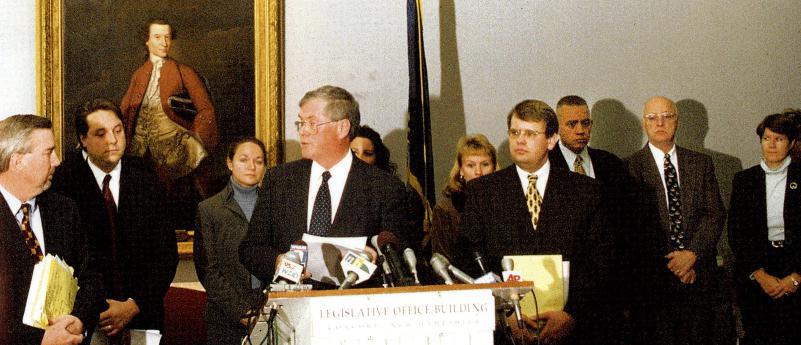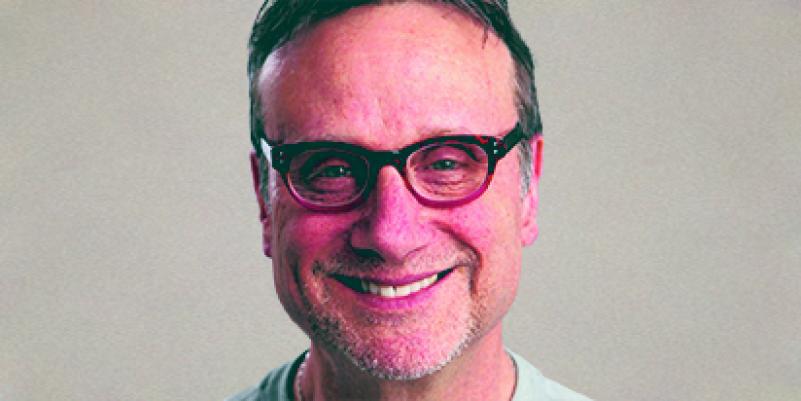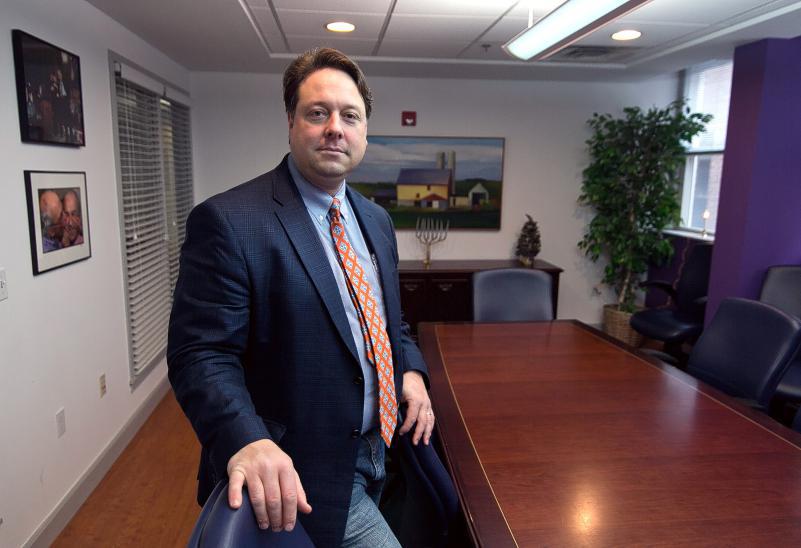|
Ray Duckler: A Boston scandal, uncovered by the Globe, spreads north
By Ray Duckler
Phil McLaughlin, then New Hampshire’s attorney general, played a hunch after reading a Boston Globe story nearly 14 years ago. Worried the sex abuse scandal enveloping the Boston Archdiocese wasn’t confined to our neighbor to the south, and armed with information from a top church official, McLaughlin called two of his young staffers, Jim Rosenberg and Will Delker, into his office. With a copy of the Globe on his desk, its banner headline of “Church allowed abuse by priest for years” revealing a dark secret, McLaughlin said what was on his mind. “I do not believe that news of this event stops at the magic border, the fictitious line in the sand that divides New Hampshire and Massachusetts,” Rosenberg, now a lawyer at Shaheen and Gordon, remembered his boss saying. “I believe we’ve shared diocesan priests. We need to look into this.” And so they did. Fourteen months later, after assembling a task force of investigators and state and local police, the attorney general’s office released its report, which detailed hundreds of accusations of sexual abuse against dozens of priests. The 154-page report described in even greater detail a follow-up to the crimes uncovered by the Globe’s investigative team, called Spotlight. That’s the name of a recently released movie detailing how the Globe cracked the case, which tarnished the Catholic church in a city that held it in the highest possible regard. The movie ends with the Globe’s initial report funneling through the city at dawn, before the lightning-quick internet had totally changed the face of news coverage. Slowly, over morning coffee, Boston learned it had become the center of what would later evolve into a worldwide scandal. And after that final scene, New Hampshire’s law enforcement community was next in a long line of investigations, subpoenas and news media reports that shook the faith of parishioners and led to the imprisonment of priests. In the months after McLaughlin met with Delker and Rosenberg, lurid tales surfaced, documented at the Roman Catholic Diocese of Manchester’s Ash Street offices in what officials called the “Secret Archives.” The files revealed decades of priests molesting children in parked cars, in church offices and on camping trips, mental trauma suffered by victims, systematic cover ups and a religious order that viewed itself as above the law: The same types of stories that had been uncovered in Boston and other Massachusetts towns and cities. The diocese essentially confessed in a signed agreement late in 2002 that it had endangered the welfare of children, avoiding any protracted criminal proceedings. “It was an extraordinary event,” McLaughlin said in an interview. “The idea that the hierarch could permit such evil here was emotionally incomprehensible to me.” McLaughlin began digging by meeting with Monsignor Edward Arsenault early in 2002. Arsenault assured the attorney general there were no issues in New Hampshire, no wrongdoing had occurred. McLaughlin relayed Arsenault’s comments to the Union Leader, but the newspaper’s next-day story set off a chain reaction, beginning with a call to McLaughlin by Ovide Lamontagne, whom McLaughlin trusted, despite sharp political differences. Lamontagne twice was the Republican nominee for governor and once the party’s nominee for the U.S. Senate. He’s now the general counsel of Americans United for Life, a pro-life public-interest law and policy organization. On that day early in 2002, though, Lamontagne was the source who alerted the attorney general’s office that big problems existed within the diocese, according to McLaughlin. “I remember sitting at my desk, and he said the (Union Leader) story wasn’t exactly accurate,” McLaughlin said. “He said there had been some issues.” Lamontagne, who later began representing the church legally, declined to confirm McLaughlin’s account or comment at all, citing attorney-client privilege, leaving it unclear how Lamontagne knew about the church abuse or how long he’d been aware of it. But armed with this new information, McLaughlin acted instantly, calling Arsenault into a meeting at Lamontagne’s Manchester law office. McLaughlin said he had a “frank discussion,” with Arsenault, adding that he entered the meeting “agitated.” “The core of the conversation was not only the fact that there had been incidences, but Monsignor Arsenault’s position was that these matters should and could be handled internally by the church,” McLaughlin said. “My position was that if the matters involved criminality, then they should and would be handled by the attorney general’s office. The way it was expressed was somewhat more theatrical.” McLaughlin’s suspicions about a state-wide scandal were later fed through the Globe’s reporting on Bishop John McCormack, a former top official of the Boston Archdiocese who had been named the leader of the Diocese of Manchester in 1998. McCormack had been the right-hand man for Cardinal Bernard Law, who resigned after the Globe reported he had covered up allegations of sexual abuse in the Archdiocese and helped move guilty priests to other churches rather than contact authorities. The Spotlight investigation showed McCormack was warned decades before that the Rev. Joseph Birmingham was molesting children and did nothing to stop it. Subsequent reports showed that McCormack chose not to disclose to parishioners that priests in the Boston Archdiocese had been accused of child molestation. As it turned out, a pair of filing cabinets outside McCormack’s Manchester office, called the Secret Archives, held documentation long since locked away. Delker, who declined to comment for this three-part series because of his role as a superior court judge, and Rosenberg were given full access to the files through a subpoena, leading to a litany of disturbing evidence that blew the case wide open. In old-school fashion, the two investigators sat at a table near the filing cabinets and spent hours sifting through page after page, file after file. What they found horrified them. Complaints and reports from parents of victims and law enforcement officials dated back decades, detailing episodes of priests giving and getting sexual gratification from boys, then, after receiving a transfer to another parish to calm the waters, doing it again. Priests, the documents said, fondled boys in parked cars. Sodomy and oral sex occurred. Therapy, the diocese claimed, could cure the offenders, and when doctors’ reports explained the potential for more dangerous behavior, nothing was done. Abuse happened at priests’ homes, their rectories, on weekend getaways. Always, the diocese told authorities and victims’ parents, the matter would be addressed in house. “Sometimes the diocese would refer a priest to counseling, and then you’d see further complaints in the diocesan file from a new parish where priests had been reassigned,” Rosenberg said during an interview in his law firm’s conference room. “You started to see a rhythm that was familiar from what we heard about from the Archdiocese in Boston, but it was just the skeleton of it. “We needed to talk to the victims.” Contact: rduckler@cmonitor.com
|
.
Any original material on these pages is copyright © BishopAccountability.org 2004. Reproduce freely with attribution.


